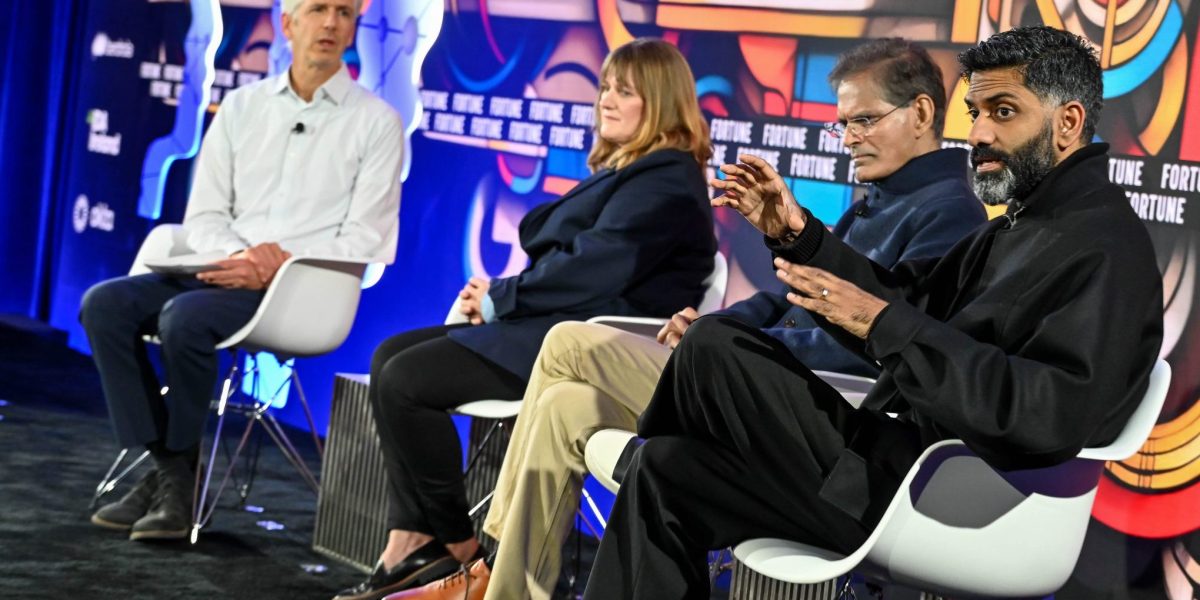
- College graduates are calling their degrees worthless. According to new data from Indeed, piling student loans and fears of AI reshaping the workplace are to blame. While experts say higher education is still important, Gen Z should constantly prioritize “upgrading their toolkit” to be successful.
College is often advertised as the best four years of one’s life, but many Americans now have regrets.
More than a third of all graduates now say their degree was a “waste of money,” according to a new survey by Indeed. This frustration is especially pronounced among Gen Z, with 51% expressing remorse—compared to 41% of millennials and just 20% of baby boomers.
Overall, a growing share of college-educated workers are questioning the return on investment (ROI) of their degree, Kyle M.K., a career trend expert at Indeed, told Fortune. It’s something that’s not all too surprising considering the average cost of a bachelor’s degree has doubled in the last two decades to over $38,000, and total student loan debt has ballooned to nearly $2 trillion.
“Another 38% feel student loans have limited their career growth more than their diploma has accelerated it,” M.K. said. “Together, these realities are nudging universities and employers to shift focus from pedigree to practical skill. In fact, 52% of U.S. job postings on Indeed don’t list any formal education requirement.”
However, for many young people, this realization is coming too late. Already, some 4.3 million Gen Z have been left behind as “NEETs”—not in education, employment, or training—with no clear direction on how to restart their early careers.
The long road to finding value in a degree
For young people in particular, who are navigating a less-than-ideal job market, it can be difficult to see the long-term ROI of college. This is especially true when, for some subjects, like psychology, philosophy, or English, it can take over 20 years in the workforce for the degree to pay for itself, according to the Education Data Initiative.
However, Christine Cruzvergara, chief education strategy officer at Handshake, warns against valuing a degree from a purely quantitative standpoint.
“It’s shortsighted to focus only on immediate employment, as that makes the assumption that the value of higher education is only to get your first job,” Cruzvergara told Fortune. “When in reality, higher education contributes to career advancement opportunities, exposure to a variety of fields, aids in self-discovery, and develops management and leadership skills.”
While nearly 70% of young graduates believe they could do their job without a degree, they may have not been exposed to their network without it. Cruzvergara says that universities are failing to promote that they’re more than just a piece of paper that’ll open doors after graduation day, but a hotbed for learning and meeting like-minded people while on campus.
For example, Mark Zuckerberg dropped out of Harvard during his sophomore year to focus on building Facebook into the social media empire it is today. But he couldn’t have done it without the four co-founders he met at university.
“Gen Z faces a particularly uncertain job market, and there’s a need for a better connection between education investment and outcomes,” she adds.
AI has spooked college graduates into a cynical spiral
The spread of artificial intelligence into all parts of education and the workplace has made college graduates question their degree even more, with some 30% feeling AI has outright made their degree irrelevant—a number that jumps to 45% among Gen Zers.
This is despite efforts from thought leaders in the space to calm fears about AI replacing workers. “AI is not going to take your job,” Netflix’s co-CEO Ted Sarandos said last year. “The person who uses AI well might take your job.”
While M.K. admits that skill areas like routine programming, basic data analysis, and templated content creation have become highly exposed to AI, fields like nursing, advanced project management, and creative strategy are relatively insulated.
“AI is more of an amplifier than a pink slip,” M.K. said, adding that above all else, those who prioritize lifelong learning and have open conversations with their employer about AI will be able to soar in the wake of technological advancements.
“AI won’t invalidate a solid education, but it will reward those who keep upgrading their toolkit.”
This story was originally featured on Fortune.com




